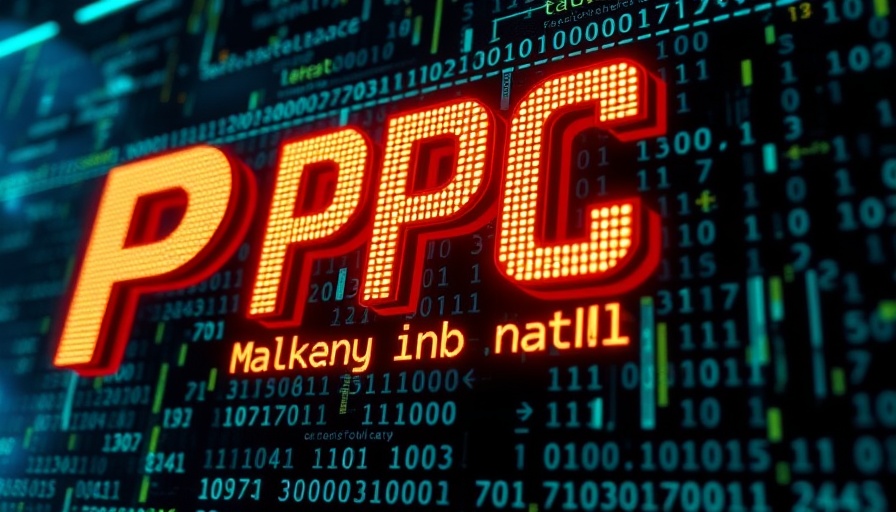
Understanding the Roots of PPC Campaign Failures
Pay-per-click (PPC) advertising can be a double-edged sword for businesses. While it offers quick access to targeted audiences ready to engage with your product or service, many advertisers end up losing substantial amounts of money simply because they don’t know how to manage their campaigns effectively. The crux of the problem often lies in misjudgment of ad spending versus returns, which may stem from inadequate targeting, poorly optimized ads, and lack of competitor analysis.
Navigating the Complexity of Ad Costs
A fundamental element to grasp is how PPC costs are calculated. Advertisers engage in a competitive bidding process for keyword placement. Each click creates spending that must be carefully monitored—this is especially critical in competitive industries where costs can soar. Much of the expense comes from incorrect keyword choices, leading to irrelevant clicks. This is where the importance of quality scores becomes vital. The higher your quality score, the lower your cost per click, ensuring that you aren't pouring money into campaigns that aren't performing.
The Role of Quality Scores in Cost Management
The quality score, an algorithmically assigned value from platforms like Google Ads, measures ad relevance, expected click-through rate, and landing page experience. High relevance translates to efficiency—better ads mean lower costs. A strategy should focus on honing in on targeted, long-tail keywords that reflect user search intent, enhancing ad relevance, and refining the user experience on your landing page, ensuring users find exactly what they seek.
Embracing Automation for Enhanced Performance
For busy business owners, automated bidding systems can seem like a magic wand. These platforms adjust bids in real-time based on competitive positioning and user behavior. Such automation can help capture clicks better while keeping costs manageable. However, it's critical to monitor performance, since various factors such as audience segmentation and time of day can significantly influence efficacy and costs, necessitating occasional manual input to optimize outcomes further.
Cross-Platform Strategies: A Broader Approach
Where many fail is limiting their PPC approach to just a couple of platforms, typically Google. Broadening service scopes to include Bing and even social networks like Facebook, LinkedIn, or Instagram can dramatically transform performance. Each platform possesses unique targeting capabilities and often less competition for clicks, especially in niche markets. By diversifying PPC strategies, businesses can reach broader audiences while capitalizing on varying cost dynamics across different ad networks.
Retargeting: Engaging Previous Visitors
One of the most cost-effective methods to recoup lost investments is through retargeting. By tracking visitors who have engaged with your website previously, businesses can create specially tailored ads aimed at bringing them back. This tactic mirrors a soft touch and strengthens brand recall, making it more likely that these prospects will convert, chewing through previously wasted efforts. According to recent studies, retargeted ads have a higher click-through rate and a better ROI than standard impressions.
Analyzing Data: The Key to Continuous Improvement
Data analytics is the engine that drives effective PPC management. Regularly analyzing metrics like click-through and conversion rates helps develop a clearer picture of what works and what doesn’t. Leveraging tools like Google Analytics alongside the insights available from your chosen advertising platforms can help businesses make informed decisions. Establishing key performance indicators (KPIs) for your campaigns not only aids in adjusting budgets efficiently but also highlights opportunities for optimization.
Exploring Creative Ad Copy
Differentiating your ads through creative copy is paramount. Engaging your audience with catchy, clear language helps foster a connection and often directly increases click-through rates. A/B testing various headlines and calls to action can determine the most effective phrasing—think of it as trying different pitches until you find one that resonates. Keeping the copy consistent with your landing page assures a smooth user journey, enhancing conversion rates.
Maximizing ROI with Budget Efficiency
Ultimately, all these strategies aim to enhance return on investment (ROI). Implementing a flexible budgeting approach can allow for real-time adjustments based on campaign performance. Devising priorities per channel based on past performance data optimizes spending, ensuring every dollar contributes effectively to your overall digital marketing efforts. By regularly reassessing campaign effectiveness, you ensure that your strategies stay aligned with business objectives and advertising goals.
Conclusion: Taking Action Towards Profitable Advertising
Understanding the intricate details of your PPC advertising strategies will pave the way to smarter spending and improved outcomes. From optimizing your quality scores to embracing automated tools, you have the power to transform your campaigns into profit-generating machines. Don't just throw money at ads; invest time in refining your approach to marketing in the evolving digital landscape. Explore actionable strategies today that can return substantial value, and remember, every click counts.
 Add Row
Add Row  Add
Add 




Write A Comment